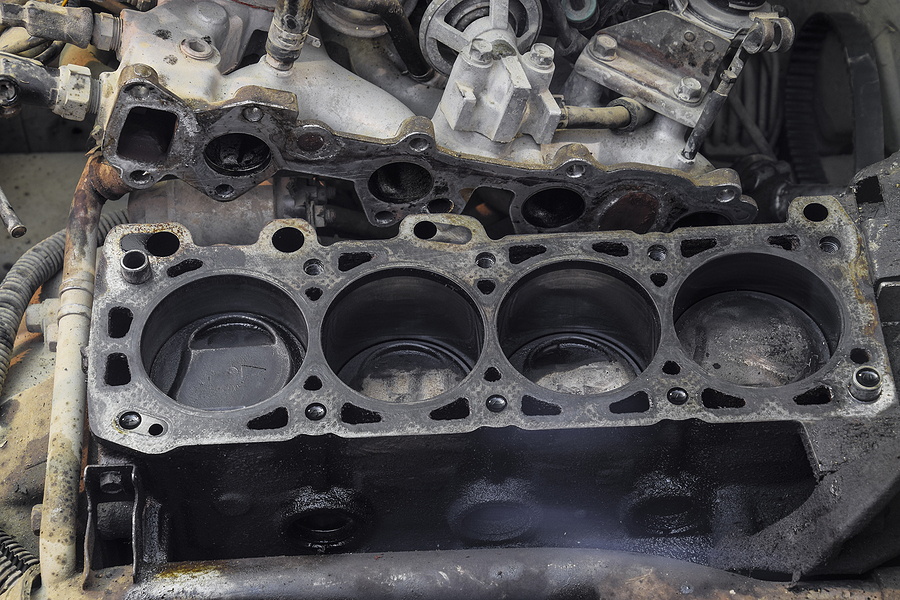That rough idling, strange vibration, or sudden loss of power you’re experiencing isn’t just an inconvenience—it’s your engine telling you something’s wrong. Engine misfiring is one of the most common engine problems that can transform your smooth ride into a frustrating experience, but understanding what’s happening under the hood is the first step toward getting back on the road.
An engine misfire occurs when one or more cylinders fail to ignite properly, disrupting the smooth operation of your vehicle. While this might sound like a minor hiccup, ignoring a misfiring engine can lead to costly repairs, including potential engine replacement or even declaring your vehicle a total loss. The good news? Most engine misfire causes are repairable when caught early, saving you from an expensive car repair bill down the line.
Whether you’re driving a reliable Honda Civic, a sturdy Ford F-150, a dependable Toyota Camry, or an older Pontiac Grand Am, understanding engine misfiring symptoms and solutions can help you make informed decisions about your car’s health.

Recognizing Engine Misfiring Symptoms
Your car communicates through various signals, and recognizing these symptoms early can prevent minor issues from becoming major engine problems.
- Rough Idling: When your engine misfires, you’ll notice irregular engine rhythm while idling. Instead of a smooth, consistent hum, your engine may shake, stutter, or produce an uneven sound.
- Decreased Power and Acceleration: A misfiring cylinder reduces your engine’s overall power output. You might notice sluggish acceleration, difficulty maintaining speed on hills, or a general lack of responsiveness when pressing the gas pedal.
- Vibrations While Driving: Engine misfires create noticeable vibrations that travel through your vehicle. These vibrations are typically felt through the steering wheel, seat, or floorboards and become more pronounced during acceleration.
- Increased Fuel Consumption: When cylinders misfire, your engine works harder to maintain performance, resulting in poor fuel economy. You might find yourself visiting gas stations more frequently than usual.
- Check Engine Light Illumination: Modern vehicles equipped with onboard diagnostics will trigger the check engine light when engine misfiring occurs. This warning system provides valuable diagnostic information through error codes.
Common Causes of Engine Misfiring
Understanding what causes engine misfires helps you communicate effectively with mechanics and make informed repair decisions.
- Faulty Spark Plugs: Worn, fouled, or damaged spark plugs are among the most frequent culprits. Over time, spark plugs accumulate carbon deposits or wear down, preventing proper ignition of the air-fuel mixture.
- Ignition Coil Issues: Ignition coils transform battery voltage into the high-voltage spark needed for combustion. When coils fail, affected cylinders won’t receive adequate spark, causing misfires.
- Vacuum Leaks: Your engine relies on precise air-fuel ratios for optimal performance. Vacuum leaks disrupt this balance by allowing unmeasured air into the system, leading to lean conditions and misfires.
- Fuel Injector Problems: Clogged, dirty, or failing fuel injectors prevent proper fuel delivery to cylinders. This results in incomplete combustion and engine misfiring.
- Low Compression: Worn piston rings, damaged valves, or blown head gaskets can reduce cylinder compression, preventing proper combustion even when fuel and spark are present.
- Sensor Malfunctions: Mass Air Flow (MAF) sensors and oxygen (O2) sensors provide critical data to your engine’s computer. When these sensors fail, incorrect air-fuel mixtures result in engine misfires.
Less Common but Important Causes
- Timing Belt or Chain Issues: If timing components wear or slip, engine valves open and close at incorrect intervals, disrupting the combustion cycle and causing misfires.
- EGR Valve Problems: A malfunctioning Exhaust Gas Recirculation valve can introduce excessive exhaust gases into the combustion chamber, diluting the air-fuel mixture and causing misfires.
- Cylinder Head Gasket Leaks: When head gaskets fail, coolant can enter cylinders, especially during cold starts, leading to misfires and potential engine damage.
Get a Free Quote for Your Old Car! ✅
Diagnosing Engine Misfires
Proper diagnosis ensures accurate repairs and prevents unnecessary expenses.
- OBD-II Scanner Usage: Modern vehicles store diagnostic trouble codes when misfires occur. An OBD-II scanner can identify which cylinders are misfiring and provide clues about underlying causes.
- Visual Inspection: Examining spark plugs, ignition wires, and vacuum hoses can reveal obvious problems like corrosion, cracks, or carbon buildup.
- Ignition Coil Testing: Mechanics use specialized tools to test ignition coil output, ensuring each coil produces adequate spark for its cylinder.
- Vacuum Leak Detection: Technicians use smoke machines or propane torches to identify vacuum leaks that might not be visible during standard inspections.
Repair Options and Costs
Understanding repair costs helps you budget appropriately and avoid surprise expenses.
- Spark Plug Replacement ($50-$200): Often the most cost-effective solution, spark plug replacement addresses many common misfiring issues. The price varies based on your vehicle’s requirements and spark plug quality.
- Ignition Coil Replacement ($150-$400 per coil): When coils fail, replacement is typically necessary. Some vehicles require individual coil replacement, while others use coil packs serving multiple cylinders.
- Vacuum Leak Repair ($100-$300): Costs depend on leak location and accessibility. Simple hose replacements are inexpensive, while intake manifold gasket repairs require more labor.
- Fuel Injector Service ($100-$500): Professional cleaning may resolve minor injector issues, but severely clogged or damaged injectors require replacement.
- Compression Issue Resolution ($500-$2000+): Major internal engine problems like worn rings or valve damage require extensive repairs. In severe cases, engine replacement or rebuilding may be necessary, potentially making your vehicle a total loss depending on its value.
*Disclaimer: Repair costs mentioned are estimates and will vary depending on location and specific circumstances.
Can You Drive with a Misfiring Engine?
While a misfiring engine might still run, driving with this condition poses significant risks. Continued operation can cause catalytic converter damage, oxygen sensor failure, and even cylinder head damage. Unburned fuel from misfiring cylinders can overheat your catalytic converter, leading to expensive replacement costs.
Additionally, severe misfires can affect transmission performance in some vehicles, causing rough shifting or stalling. Engine knocking may accompany misfires, indicating serious combustion problems requiring immediate attention.
For your safety and your wallet’s protection, avoid driving with a misfiring engine whenever possible.
Preventing Engine Misfires
Proactive maintenance prevents most engine misfiring issues and extends your vehicle’s life.
- Follow Maintenance Schedules: Adhere to manufacturer-recommended service intervals for spark plug replacement, oil changes, and filter replacements. Regular maintenance catches problems before they cause misfires.
- Use Quality Fuel: Choose the octane level recommended for your vehicle and avoid low-quality or contaminated fuel. Quality fuel reduces injector problems and carbon buildup.
- Address Issues Promptly: When you notice symptoms, investigate immediately. Early intervention prevents minor issues from becoming major engine problems requiring expensive repairs.
- Regular Professional Inspections: Have qualified mechanics inspect your vehicle regularly to identify potential problems before they lead to misfires.
- Practice Good Driving Habits: Avoid aggressive acceleration, hard braking, and other risky driving habits, which stress engine components and can contribute to premature wear.
Frequently Asked Questions
How often should I replace spark plugs?
Most vehicles require spark plug replacement every 30,000-100,000 miles, depending on plug type and driving conditions. Consult your owner’s manual for specific recommendations.
What diagnostic tools can I use myself?
Basic OBD-II scanners are available for home use and can identify misfire codes. However, professional diagnosis ensures accurate problem identification.
How do I find a trustworthy mechanic?
Look for ASE-certified technicians, read customer reviews, and ask for estimates from multiple shops to ensure fair pricing.
To Summarize
Engine misfiring isn’t just an inconvenience—it’s a warning sign that requires immediate attention. Whether the solution involves simple spark plug replacement or more complex repairs, addressing misfires promptly protects your investment and prevents escalation to major engine problems that could result in costly engine replacement or even total vehicle loss.
Remember that this information provides general guidance and shouldn’t replace professional automotive advice. When in doubt, consult qualified mechanics who can properly diagnose your specific situation.
Stay informed about your vehicle’s health by exploring our other articles on car maintenance and common automotive issues. Understanding your car’s needs helps you make confident decisions and avoid unexpected repair bills.
Do you own a clunker that’s just not worth investing any more money into repairs? Let us pay you cash for it and tow it away for free! Call Benjamin’s Junk Cars for hassle-free scrap car removal and sales in Indianapolis, Indiana.
Related Post: The Average Cost of Car Engine Replacement

